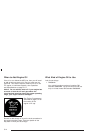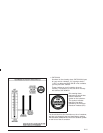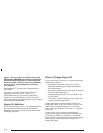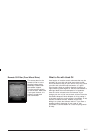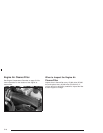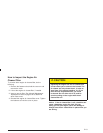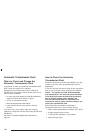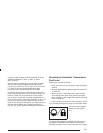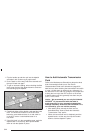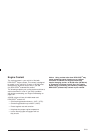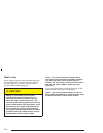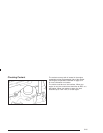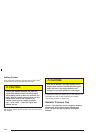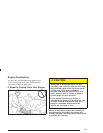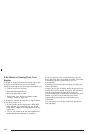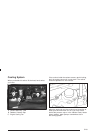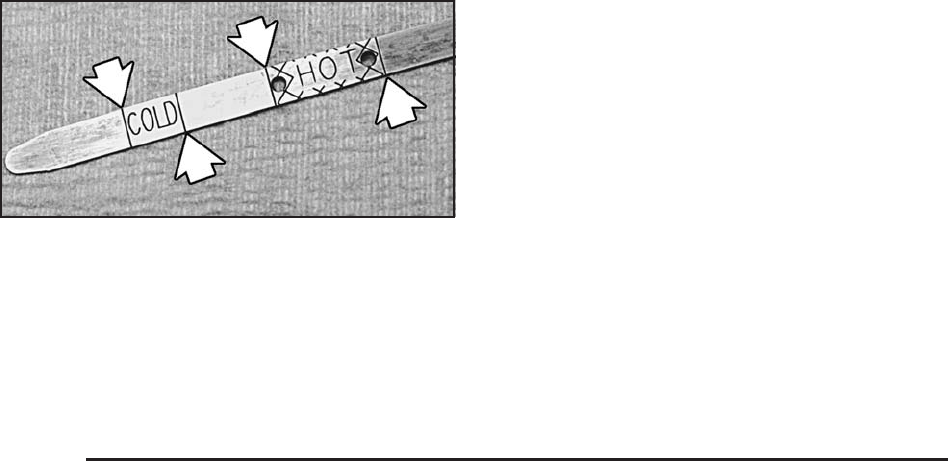
1. Flip the handle up and then pull out the dipstick
and wipe it with a clean rag or paper towel.
2. Push it back in all the way, wait three seconds and
then pull it back out again.
3. To get an accurate reading, when checking the fluid
level, keep the tip of the dipstick down to avoid the
fluid traveling up the dipstick.
4. Check both sides of the dipstick, and read the lower
level. The fluid level must be in the COLD area,
below the cross-hatched area, for a cold check or
in the HOT area or cross-hatched area for a
hot check.
5. If the fluid level is in the acceptable range, push the
dipstick back in all the way; then flip the handle
down to lock the dipstick in place.
How to Add Automatic Transmission
Fluid
Refer to the Maintenance Schedule to determine what
kind of transmission fluid to use. See Part D:
Recommended Fluids and Lubricants on page 6-32.
Add fluid only after checking the transmission fluid while
it is hot. (A cold check is used only as a reference.) If
the fluid level is low, add only enough of the proper fluid
to bring the level up to the HOT area for a hot check.
It doesn’t take much fluid, generally less than one pint
(0.5 L). Don’t overfill.
Notice: We recommend you use only fluid labeled
DEXRON
®
-III, because fluid with that label is
made especially for your automatic transmission.
Damage caused by fluid other than DEXRON
®
-III is
not covered by your new vehicle warranty.
• After adding fluid, recheck the fluid level as
described under “How to Check the Automatic
Transmission Fluid” earlier.
• When the correct fluid level is obtained, push the
dipstick back in all the way; then flip the handle
down to lock the dipstick in place.
5-22



